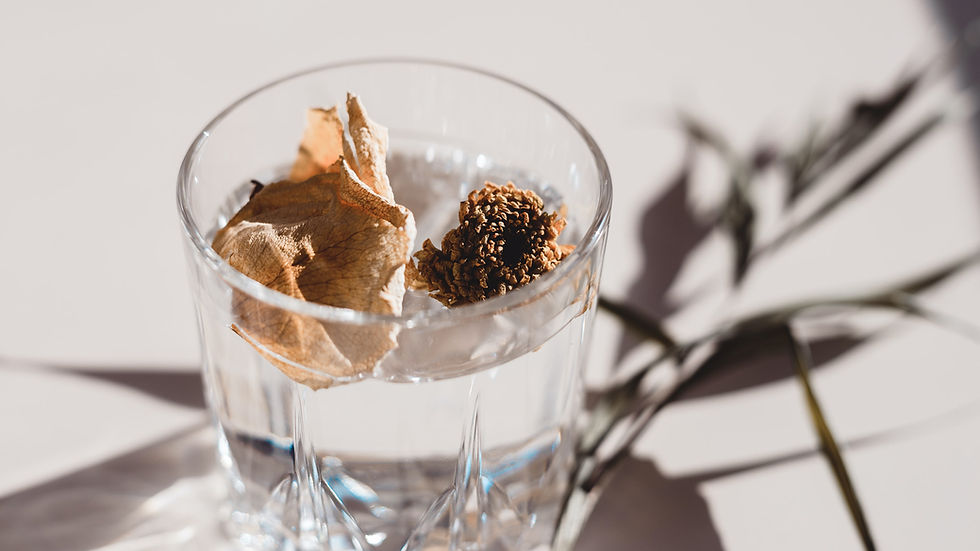Dry January as a Couple: Strengthening Your Relationship Without Alcohol
- Jesse Smith
- Jan 10, 2025
- 3 min read

Dry January can be more than a personal commitment to ditch alcohol for a month—it’s also an opportunity to grow as a couple. If you and your partner are looking to deepen your connection, improve communication, or simply take on a meaningful challenge together, Dry January offers a unique opportunity to strengthen your bond.
At Waterloo Therapy Group, we’ve seen how shared experiences like this can foster understanding, trust, and support in relationships. Here’s how you and your partner can make the most of Dry January, plus tips for navigating the journey as a team.
1. Start With a Conversation
Clear communication is key to making Dry January a positive experience for your relationship. Discuss your motivations and expectations for the month.
Are you looking to reset your habits, improve your health, or better understand your relationship with alcohol?
What challenges do you anticipate, and how can you support each other?
By setting a shared intention, you’ll begin the month with a sense of alignment and teamwork.
2. Focus on Connection, Not Avoidance
Many couples associate drinking with date nights, celebrations, or winding down together. Without alcohol, it can feel like something is missing—but this is an opportunity to create new rituals that emphasize connection.
Try replacing your usual routine with something fresh:
Sober date nights: Explore alcohol-free cocktails at a local bar, take a cooking class, or try a new activity like rock climbing or pottery.
Evening rituals: Swap the shared glass of wine for a cup of herbal tea, a walk around the neighborhood, or a few minutes of mindfulness together.
These small changes can bring a sense of novelty and intimacy to your relationship.
3. Navigate Social Settings Together
If you’re attending social events during Dry January, having a game plan can make all the difference. Discuss how you’ll handle questions or pressure to drink and support one another in sticking to your goals.
Some tips:
Practice a polite but firm “no, thank you.”
Bring your own alcohol-free beverages to gatherings.
Take breaks from events that feel too focused on drinking and suggest alternative ways to socialize.
Knowing you’re in this together can make social situations less stressful and even more enjoyable.
4. Reflect on Emotional Benefits
Without alcohol, you may notice changes in your mood, communication, and overall energy. Use this as an opportunity to reflect together:
How has Dry January impacted your relationship?
Are you noticing new ways to connect emotionally?
What challenges or unexpected insights have come up?
Taking time to share your experiences can deepen your understanding of each other and bring you closer as a couple.
5. Plan for the Future
As the month progresses, consider what you’ve learned and how you want to move forward. Whether you decide to drink less, continue your alcohol-free journey, or make other changes, use Dry January as a starting point for intentional living as a couple.
Discuss questions like:
What habits from this month would we like to keep?
How has this experience shifted our priorities or perspectives?
Are there other challenges or goals we’d like to tackle together?
Why Therapy Can Help
Dry January isn’t just about alcohol—it’s about connection, trust, and shared growth. For some couples, it can also bring up deeper questions or challenges. If you and your partner find that alcohol has played a significant role in your relationship or that deeper issues arise during this time, couples therapy can provide a supportive space to explore these dynamics.
At Waterloo Therapy Group, we specialize in helping couples navigate challenges, build stronger connections, and create fulfilling relationships. If you’re ready to take the next step, we’re here to support you.
Final Thoughts
Dry January is an opportunity to strengthen your relationship through shared commitment, communication, and creativity. By embracing this challenge together, you’ll not only reap the personal benefits but also deepen the bond you share.
If you’re curious about how therapy can support your relationship, we invite you to connect with one of our compassionate therapists at Waterloo Therapy Group.






Comments